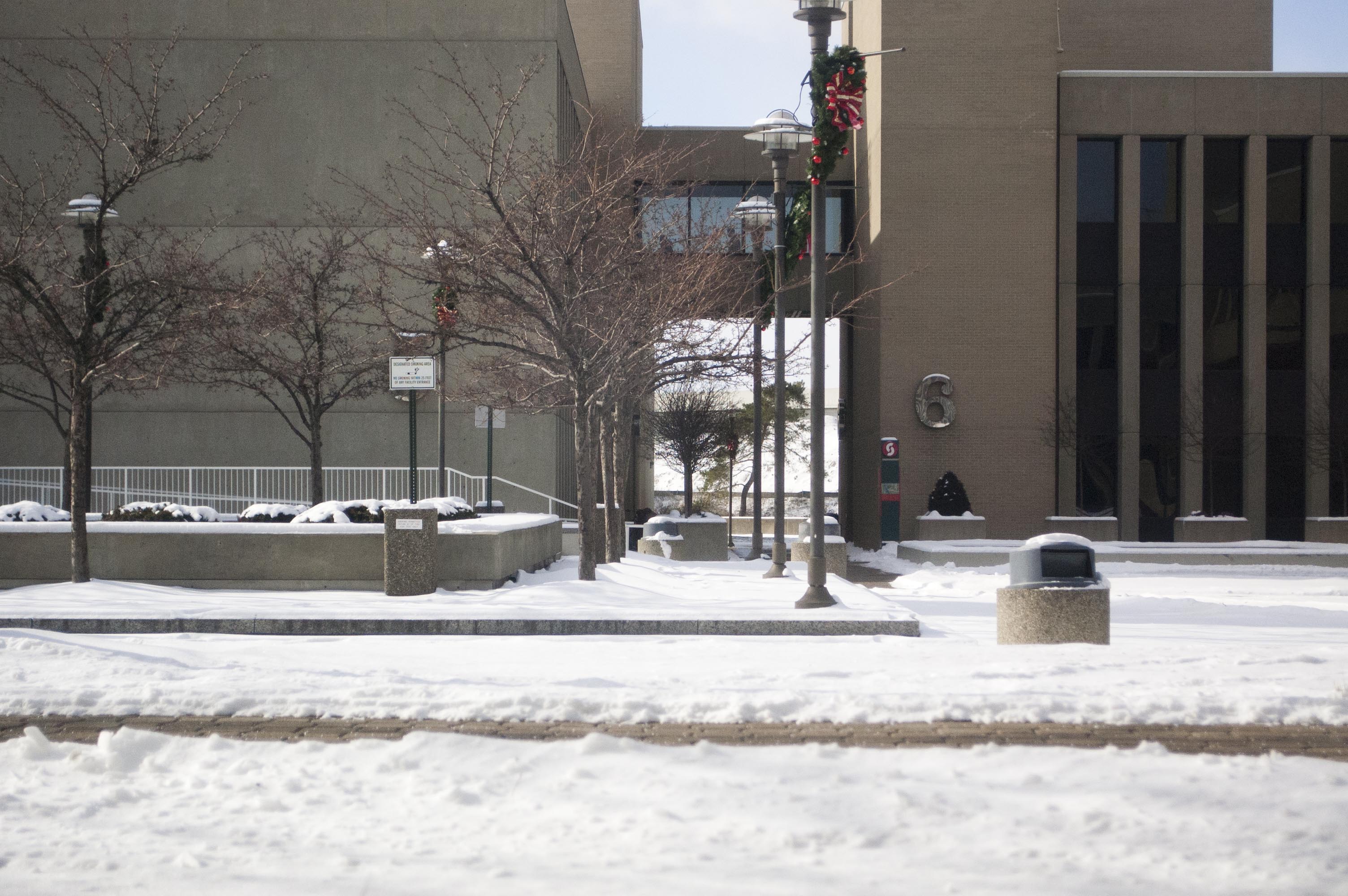
Winter is in full swing, and we in the Miami Valley are feeling the bite of the bitter cold. A few weeks ago here in Dayton, temperatures dropped well below zero and were accompanied by wind-chills that contributed to a dangerously cold outdoor experience. On Sinclair’s campus, just navigating the Hamster Tube to Lot A became an epic adventure that many Sinclair students and staff would rather not embark on.
“I don’t like it because the covered walkways aren’t heated,” said Jamie Carl, a nursing student at Sinclair. “It goes from hot to cold, hot to cold … I’m getting used to it.”
Temperatures in the Miami Valley don’t just get cold–they can get very cold. While this winter hasn’t been quite as brutal as last year’s record-breaking winter, we did see some snow and ice with sub-zero temperatures this month.
According to the Ohio Committee for Severe Weather Awareness at Ohio.gov, Dayton normally has about four days during the winter that drop below zero. Last winter we had 12 sub-zero days, with wind-chills that went down to 40 below. Now that’s cold. This year in Dayton there have only been three days where the temperature dropped below zero, according to the National Weather Service at NOAA.gov.
As grueling as it is for those of us who dare to brave the freezing-cold wasteland of Lot A, some Sinclair staff must spend hours at a time out in the elements, even when temperatures dip into the negative numbers.
Edmond Toscani, grounds crew supervisor for Sinclair Community College, said the school has a basic routine for preparing for winter. For example, they stock up on salt to keep the walkways clear and safe, and they also switch the mowers over to snow-removal mode. That means adding brooms, plows and even passenger cabins to the mowers to protect the operator from the harsh elements.
However, there are additional steps the grounds crew takes when the weather situation becomes extreme, as it did during the first part of January.
Toscani said that when the snow is wet or gets deeper than four inches, the mowers are outfitted with plows instead of brooms, and if the ground is icy, the crew may even need to apply traction devices to their boots. In addition, outdoor workers need to cover their exposed skin as much as possible, and they may need to add a layer of protective rain gear if there is sleet or freezing rain. If the going gets really tough, workers can periodically take breaks indoors to warm up.
Sinclair’s grounds crew aren’t the only ones who spend time outdoors during inclement weather; Our public-safety officers who patrol the campus grounds must also take steps to stay warm and safe during extreme cold-weather episodes.
“The majority of our safety information officers work inside, but we do have some that work in the parking garage,” said Sinclair Police Chief Charles Gift.
The Sinclair Police Department issues special cold-weather gear to their officers if they are working outdoors, such as winter coats, sweaters, hats and even hand-warming devices, Gift said. In addition, safety officers who work in Lot A have access to heated booths if they need to warm up during a shift.
Chief Gift noted that Sinclair’s safety information officers often assist students when the cold weather causes difficulties with unlocking or starting their vehicles.
“Sometimes [student’s] cars can freeze up and they can’t get into them,” Gift said. “We have an unlock-service that we provide. We also provide jump-starts to anyone who needs them.”
Jump-starts are much more common on campus during the cold winter months, Gift said.
The Sinclair Police Department shared a bulletin from FEMA and the CDC that recommends carrying jumper-cables in your car during winter just in case the cold weather puts a strain on your vehicle’s starting system and you need a jump-start.
The bulletin also recommends carrying some emergency equipment like a first-aid kit and high-calorie, storable food. A flashlight, waterproof matches and extra warm clothes and blankets are also on that list.
As cold and icy as January has been, some Sinclair students are taking the winter weather with a grain of salt.
“It depends on what type of person you are,” said Kyle Sherrets, a construction management major. “I dress pretty lightly because I don’t want to wear a heavy jacket around school—I’m used to the cold.”

